Integrating gender perspectives into environmental and climate policies in China
Date:
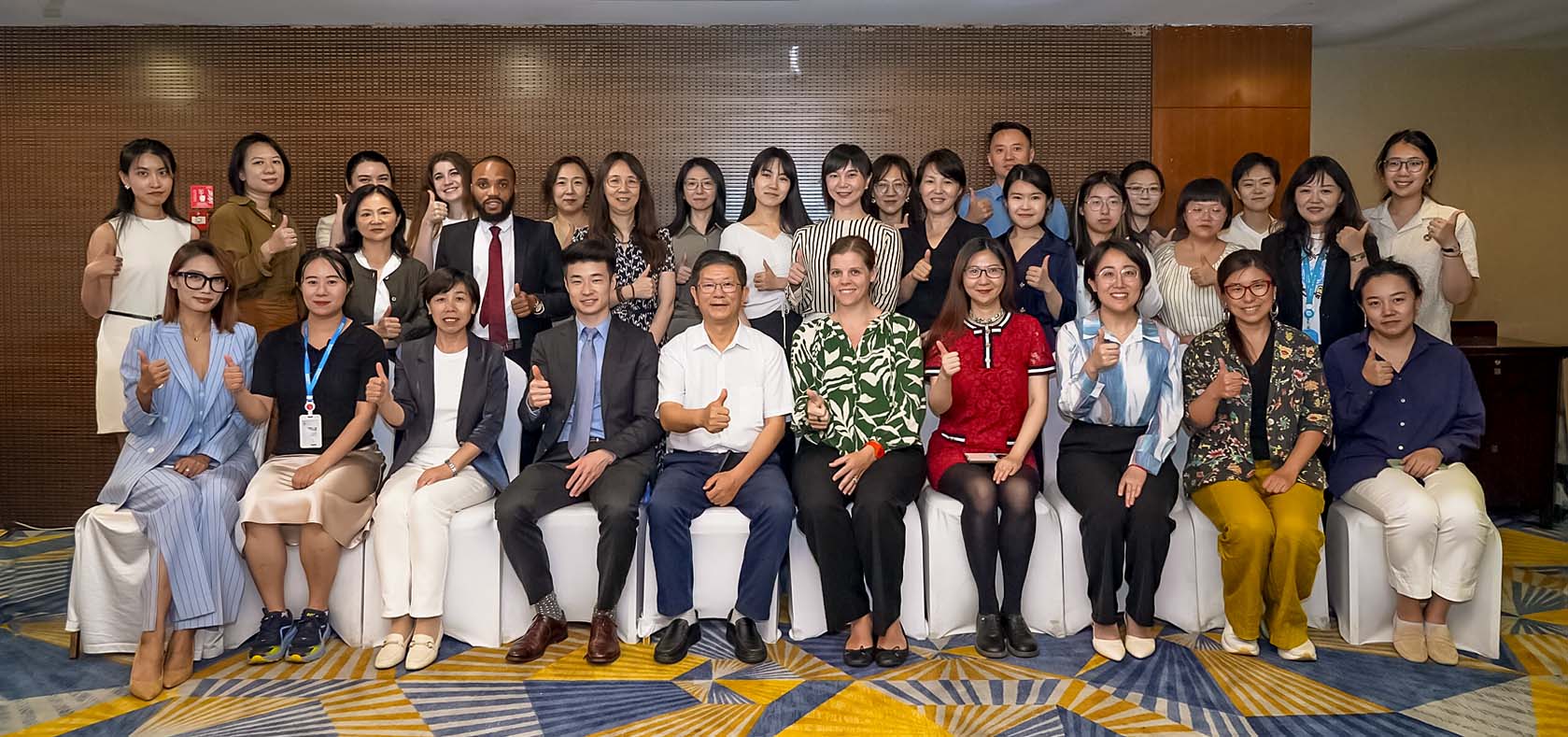
Beijing, China — The climate crisis is not gender-neutral. Grounded in the Paris Agreement and with a growing body of data and evidence, a gender-responsive and just transition towards low-carbon economies cannot be realized without incorporating gender equality considerations in relevant policies and initiatives.
However, with only 6 years remaining to realize the 2030 Agenda for Sustainable Development, merely 12 per cent of the Sustainable Development Goal (SDG) targets are on track. Progress on 50 per cent is weak and insufficient, especially on SDG 5 (Gender Equality)[1]. It is imperative that gender equality and women’s empowerment continue to influence, shape and drive the collective climate response.[2]
In 2023, China's clean energy investment surged by 40 per cent, reaching a staggering USD 890 billion. China’s commitment to clean energy and climate action presents an immense opportunity to advance gender equality in the fight against climate change.
Against this backdrop and on the occasion of World Environment Day (5 June), UN Women China and the Chinese Academy of Environmental Planning (CAEP) of Ministry of Ecology and Environment (MEE), convened the workshop "Integrating Gender Perspectives in China's Climate and Environmental Policy" to identify the priorities and feasible pathways for tangible collective gender integration actions in the immediate and longer future.
The event brought together government officials, UN representatives, think tanks, civil society, academia, and experts across environment, climate, energy, natural resources, economy, gender equality and social development areas. Their collective expertise served as a platform to chart a roadmap towards integrating gender equality into China's environmental governance frameworks.
“Giving women more space in decision-making and participation not only is the right thing to do but also is key to leveraging women’s strength and knowledge to building a more resilient and gender-responsive society to combat the challenges of climate change,” said Chu Wang, Public and Private Sector Partnership Specialist at UN Women China during his opening remarks.
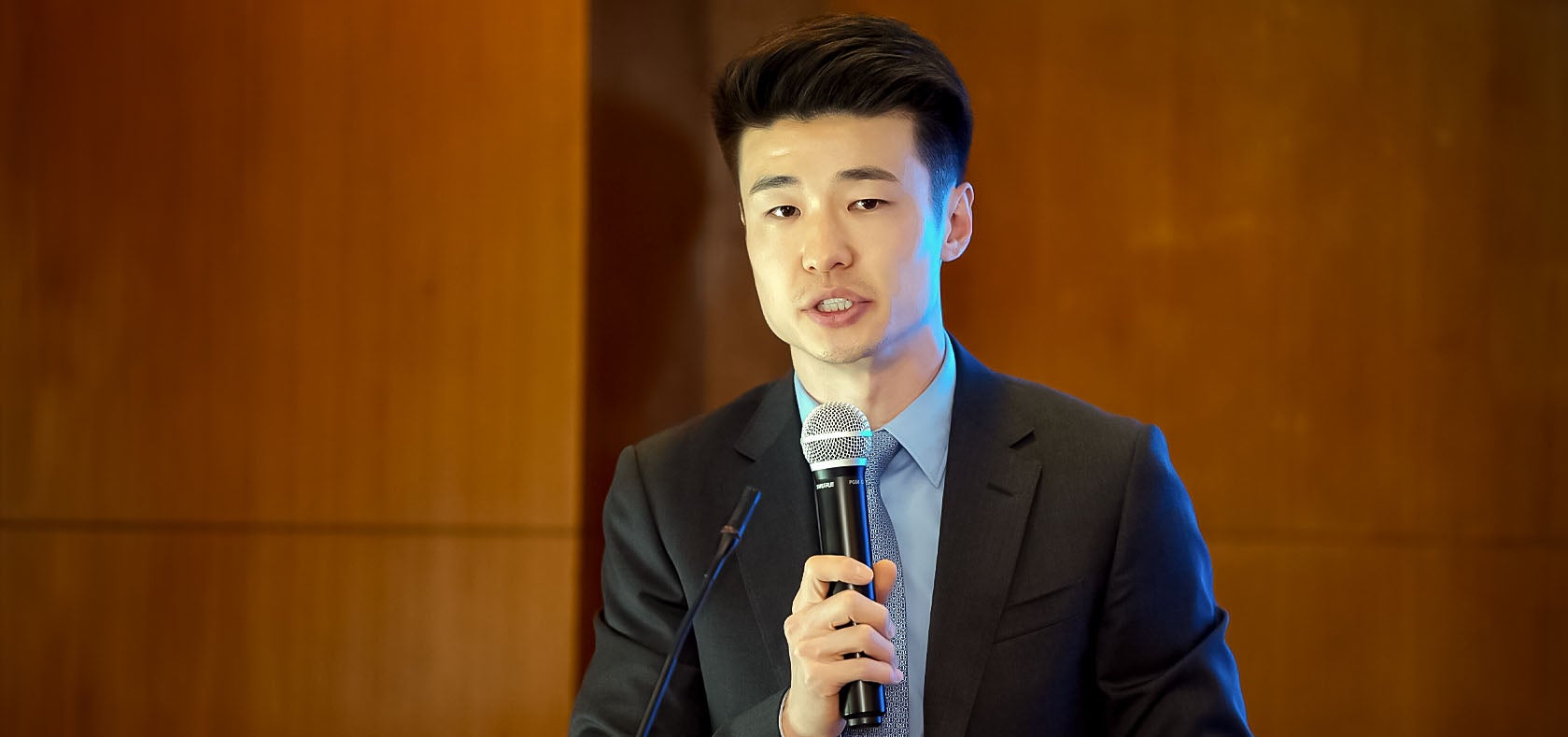
Ge Chazhong, Chief Scientist of the CAEP at the Ministry of Ecology and Environment highlighted the importance of gender mainstreaming in environment and climate decisions. He said, “as the thinktank affiliated to the Ministry, CAEP looks forward to continuing the partnership with UN Women to bring value findings and recommendations to relevant policy making process.”
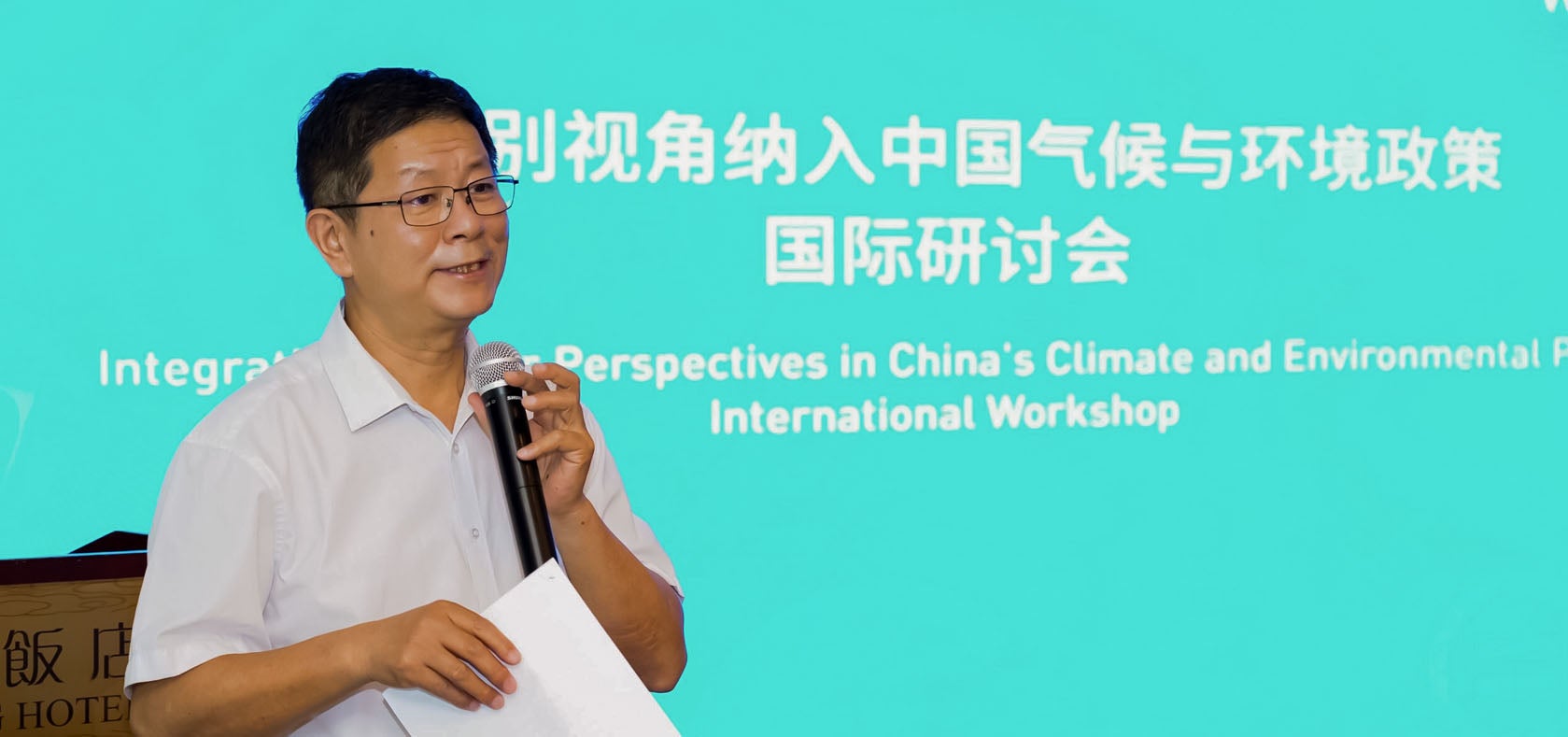
In her presentation, Amy Reggers, Gender and Climate Specialist at UN Women Regional Office for Asia and the Pacific, shared international best practices and concrete pathways for countries like China to align their climate action plans with gender-responsive approaches.
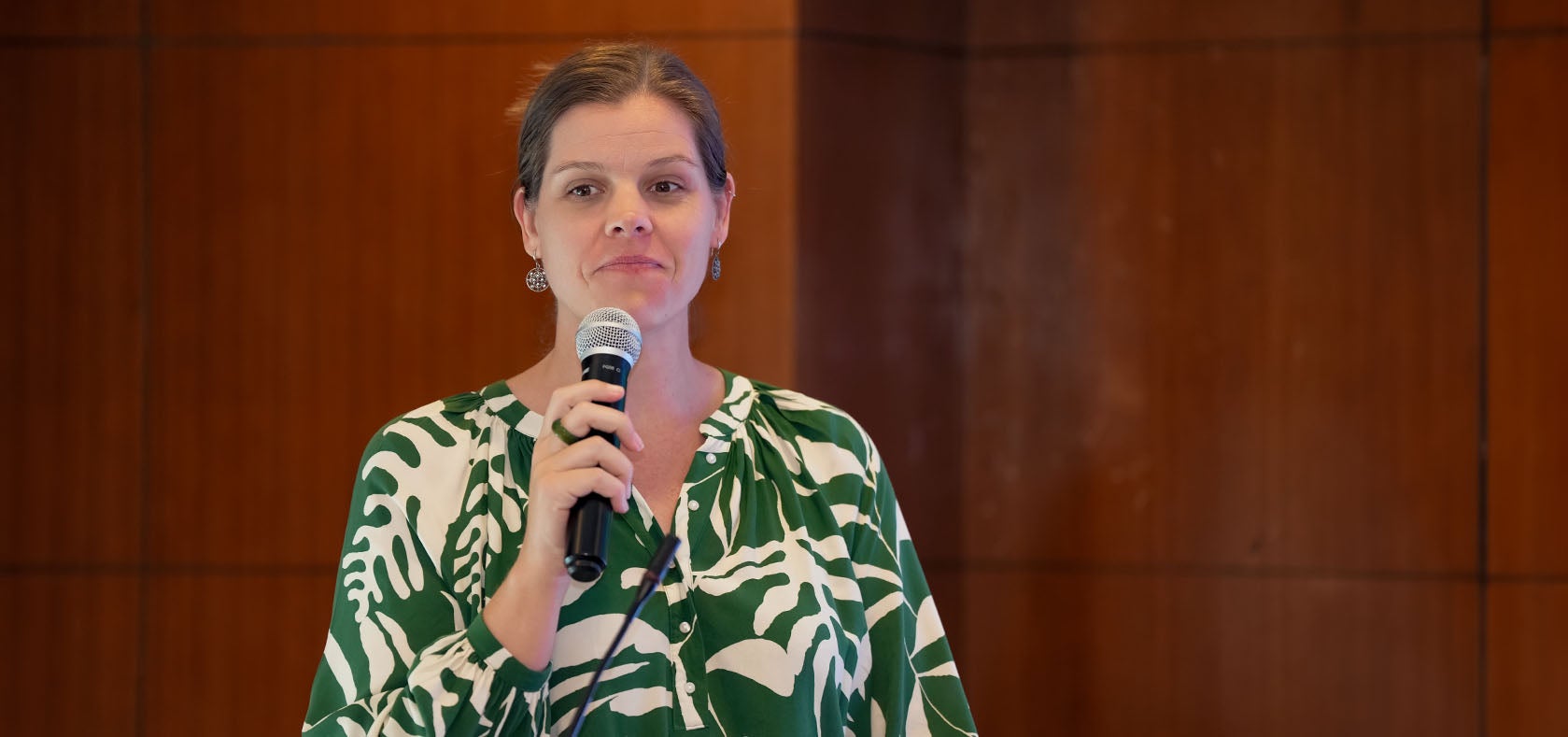
Qing Wang, UN Women China Programme Officer; and Li Xiaoqiong, Senior Engineer of the CAEP at the Ministry of Ecology and Environment, presented the initial findings of the joint research on gender integration in China's environmental policies.
The research sheds light on the current state of gender equality in climate action strategies. In 2023, among the Chinese official delegation to COP28, women comprised of 31.82 per cent [3] , which is higher than the broader Asian region, where female participation at COP28 was 28 per cent.[4] However, women’s leadership at decision making level is not high, besides, the general lack of gender disaggregated data in environmental sector limits comprehensive gender analysis in this area.
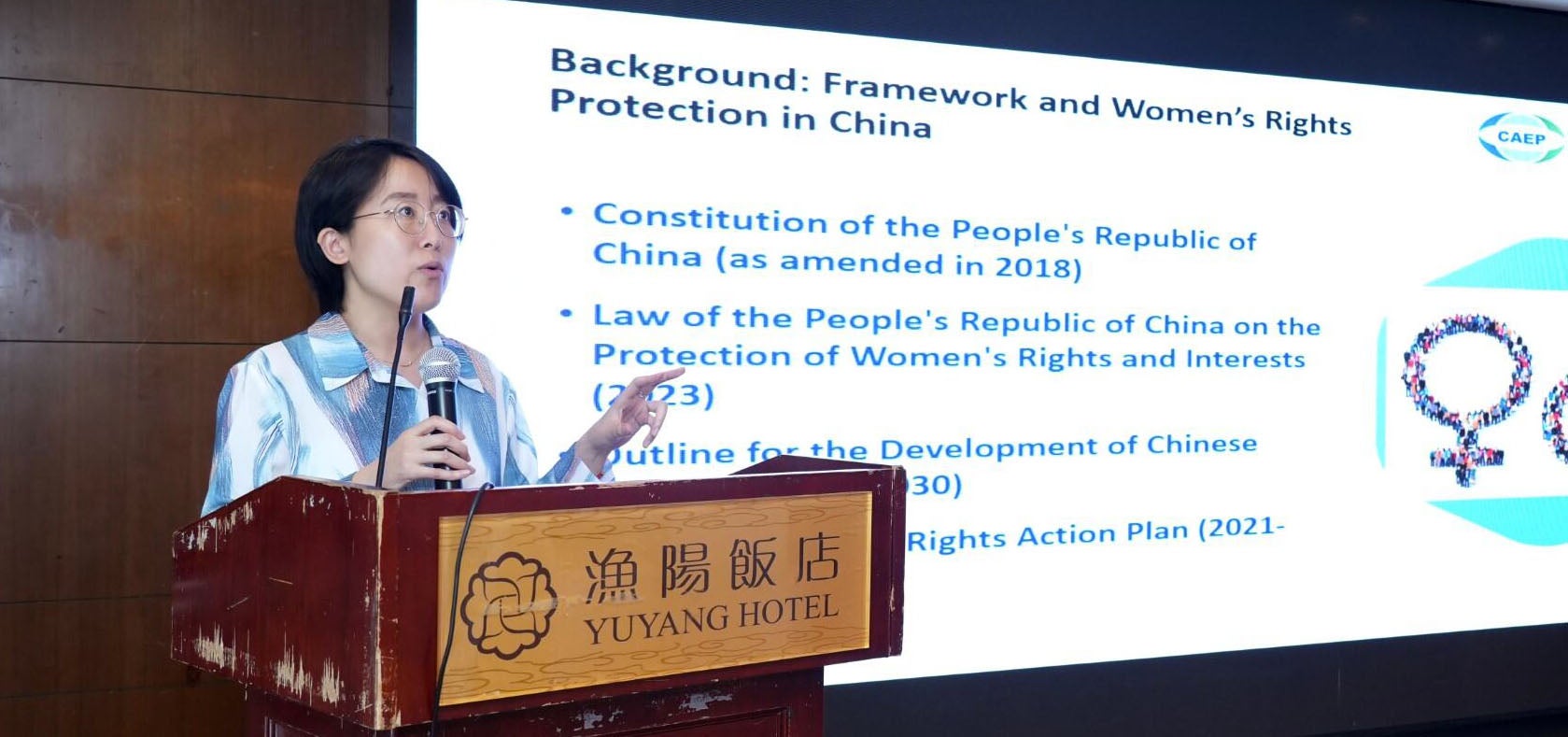

The workshop closed with a call to action that urges partners to prioritize recommendations including enhancing gender-disaggregated data collection and analysis, integrating gender lens into relevant policies and plannings, and enhancing women’s leadership in governance and decision-making bodies to address the issues identifies.
2 GENDER AND CLIMATE CHANGE: Overview of linkages between gender and climate change
3 Calculation from official excel sheet circulated by the UNFCCC